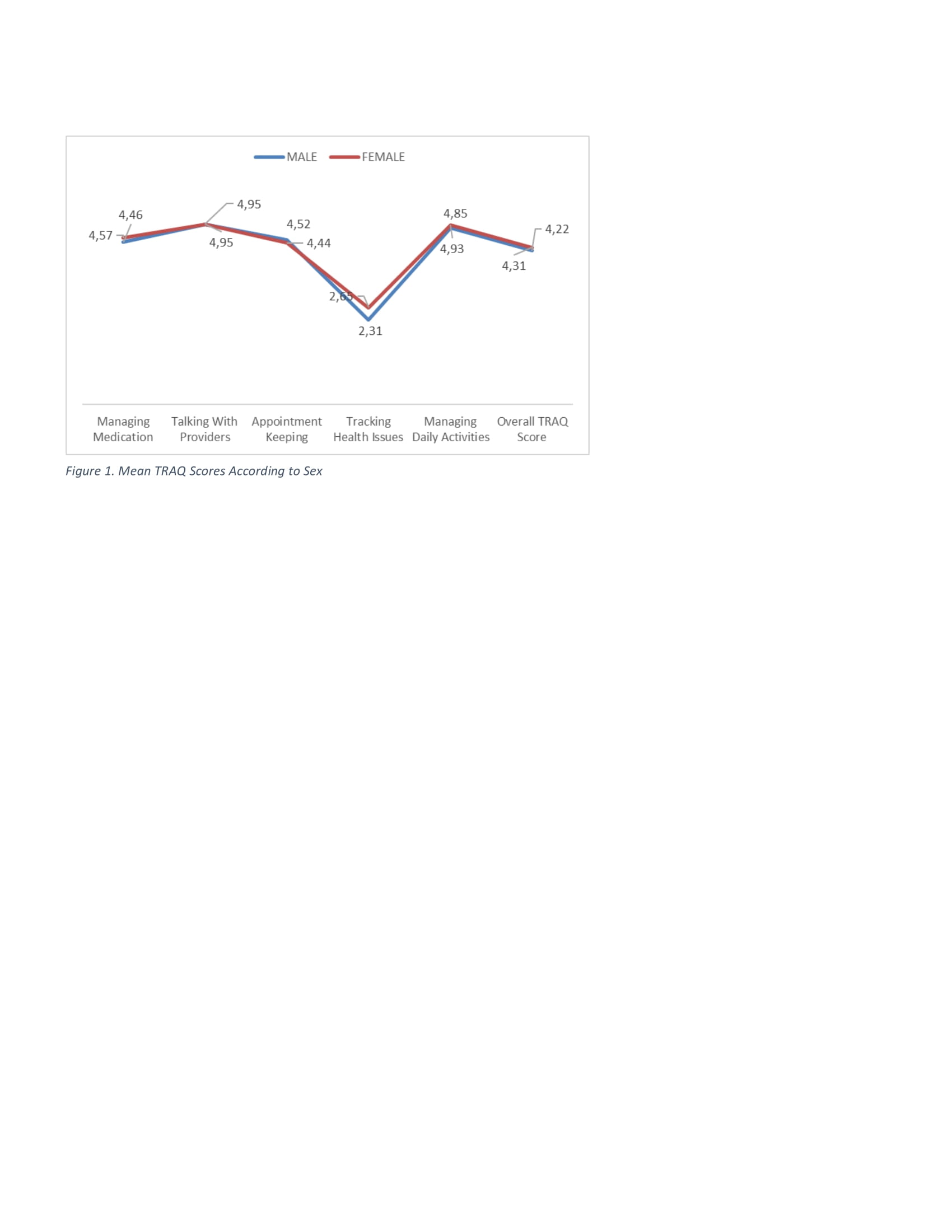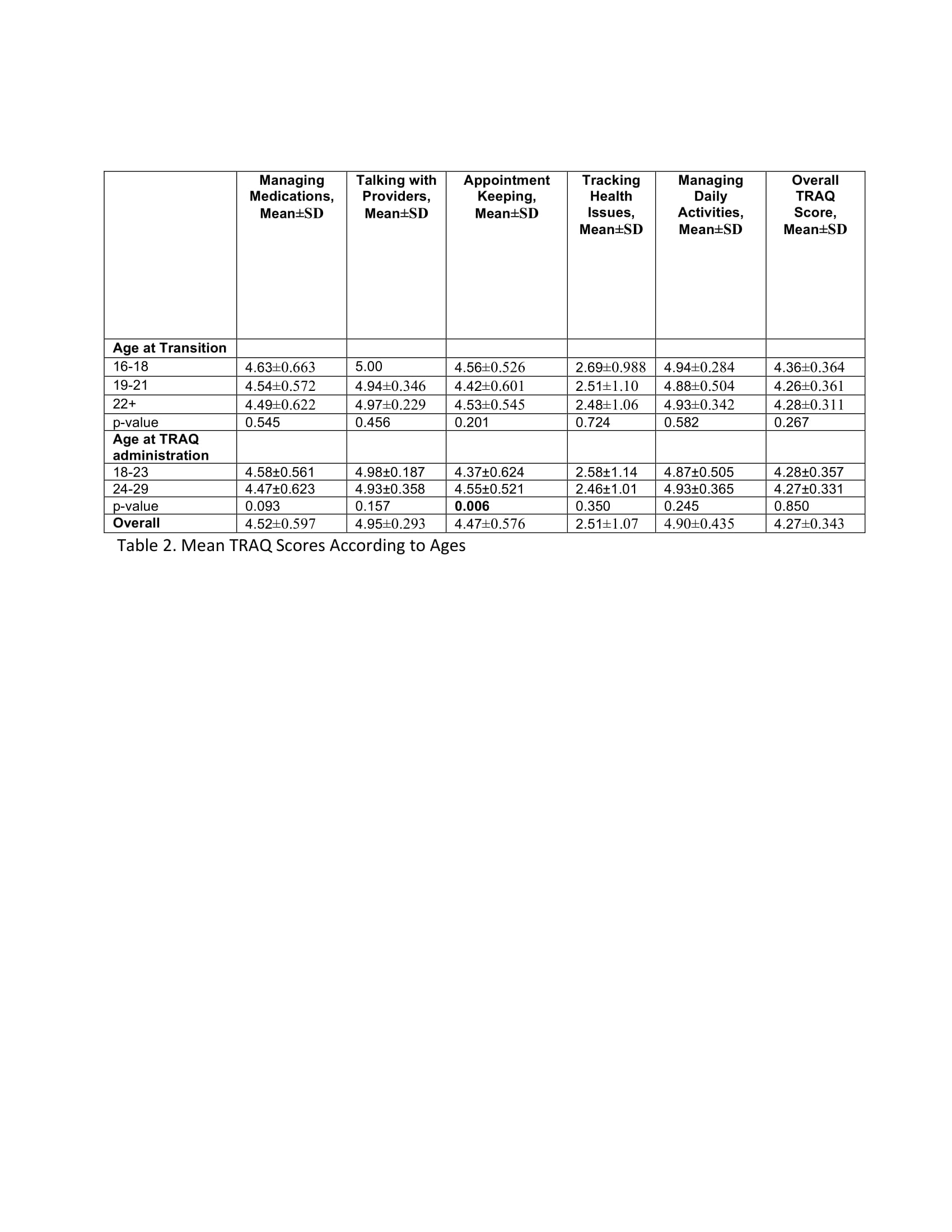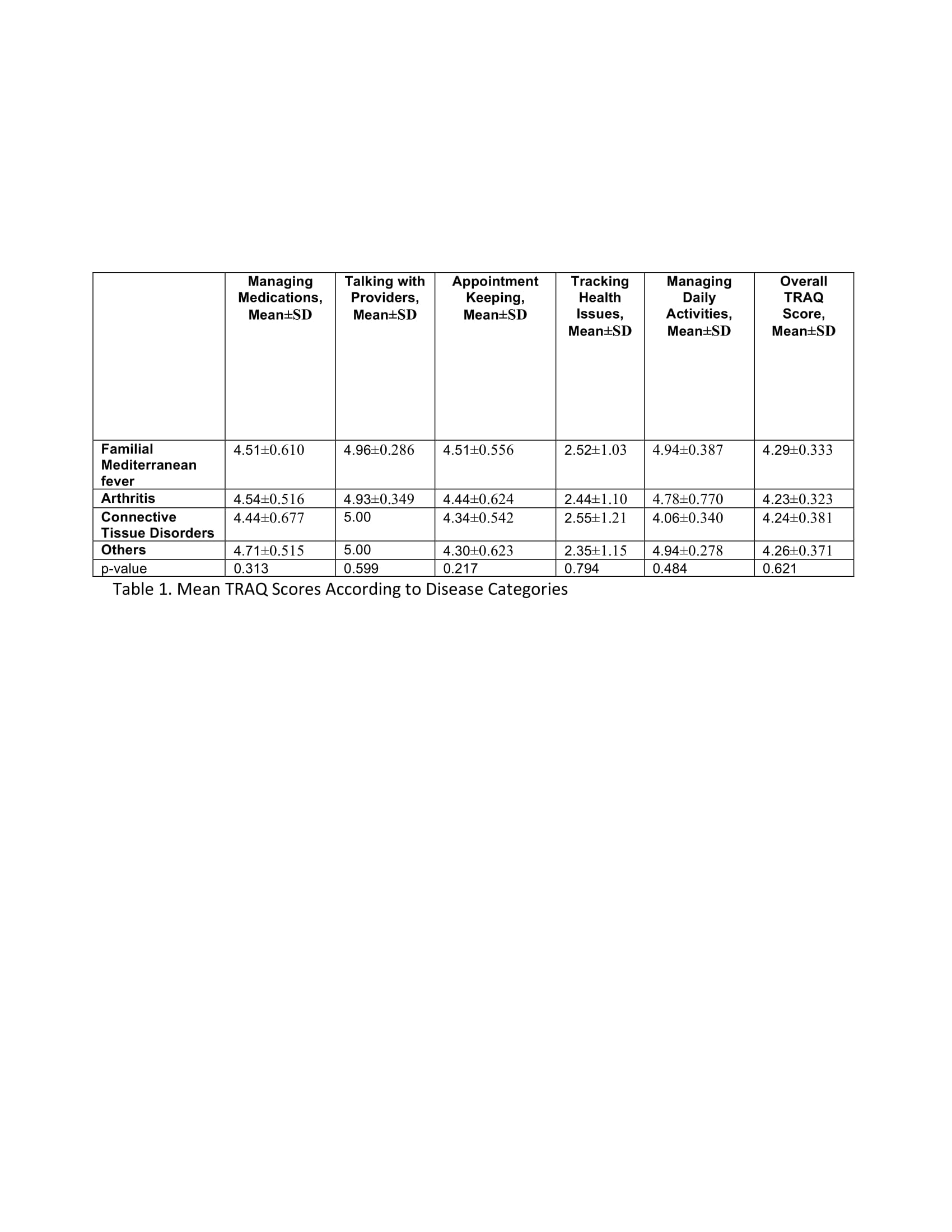Back
Poster Session C
Epidemiology, health policy and outcomes
Session: (1267–1303) Measures and Measurement of Healthcare Quality Poster
1302: Assessment of the Transition of Care from Pediatric to Adult Rheumatology in a Tertiary Center
Sunday, November 13, 2022
1:00 PM – 3:00 PM Eastern Time
Location: Virtual Poster Hall
- AA
Ali Yagiz Ayla, -None-
Istanbul University-Cerrahpasa
Istanbul, Turkey
Abstract Poster Presenter(s)
Serdal Ugurlu1, Ali Yagiz Ayla1, Helin Idil Besiroglu2, Feyza Nur Azman1, Bugra Egeli3, Hatice Eren1, Ibrahim Durucan2, Arif Alkan2, Sila Ozturk1, Sercan Ergun1, Amra Adrovic Yildiz4, Kenan Barut5, Fatih Haslak1, Sezgin Sahin1, Mehmet YILDIZ1, Huri Ozdogan6 and Ozgur Kasapcopur7, 1Istanbul University-Cerrahpaşa, Istanbul, Turkey, 2Istanbul University-Cerrahpaşa Medical Faculty, Istanbul, Turkey, 3Children's Hospital of Los Angeles, Los Angeles, CA, 4School of Medicine, KOC University, Istanbul, Turkey, 5Istanbul University-Cerrahpasa, Istanbul, Turkey, 6Istanbul University-Cerrahpaşa Medical Faculty Department of Internal Medicine Division of Rheumatology, Istanbul, Turkey, 7Istanbul University-Cerrahpaşa, Cerrahpaşa Medical School, Istanbul, Turkey
Background/Purpose: Taking the responsibility for their own health should be an important goal for the patients in the health care transition process. The Transition Readiness Assessment Questionnaire (TRAQ) is an effective tool to assess the competencies of the patients in five domains, which is usually administered before transitioning to adult care. For the first time, we aimed to measure the self-management skills of the patients with rheumatologic diseases who had already transitioned to adult rheumatology by using the TRAQ.
Methods: 310 patients who had transitioned from pediatric to adult rheumatology between June 2020-June 2021 were interviewed. The TRAQ was administered to the patients by the physicians in our clinic. The patients were divided into groups according to their diagnoses. The patients with two rheumatologic diagnoses in different categories were included in both groups. The data evaluated included sex, age at diagnosis, age at transition to adult care, age at TRAQ administration, and diagnoses of the patients.
Results: There were 184 female (59.4%) and 126 male (40.6%) patients. The mean age at diagnosis, the mean transition age and the mean age when the TRAQ was administered were 10.7 ± 4.29, 21.1 ± 1.69 and 24.0 ± 2.26 years, respectively. The minimum and maximum ages of transition were 16 and 26, respectively (IQR:20-22). 22 patients were in the 16-18 age group, 170 patients were in the 19-21 age group, and 118 patients were in the 22+ age group according to the transition age. The patients consisted of four groups: FMF (n=203), arthritis (JIA and juvenile SpA, n=81), connective tissue disorders (SLE, scleroderma, polymyositis, dermatomyositis and Sjögren's syndrome, n=29) and others (Behçet syndrome, Henoch-Schönlein purpura, polyarteritis nodosa, Raynaud phenomenon, acute rheumatic fever, and cryoglobulinemic vasculitis, n=23). The TRAQ results according to the diseases are given in Table 1. The results according to sex are given in Figure 1. Females had higher scores than males in tracking health issues (2.65±1.02 vs. 2.31±1.11, p=0.005) and overall TRAQ score (4.31±0.326 vs. 4.22±0.360, p=0.02). The TRAQ results according to the transition age and age at TRAQ administration are given in Table 2.
Conclusion: Tracking health issues was the weakest domain in our cohort irrespective of other factors. Females performed better than males in overall TRAQ score. The transition age, the age at TRAQ administration or the diagnosis didn't affect the overall TRAQ score. Thus, initiating the transition period earlier can be recommended due to the fact that a later transition did not necessarily lead to better outcomes in self-management. Assessing the abilities after the transition in addition to pre-transition period can be a good first step to address the needs of the patients with rheumatologic diseases.



Disclosures: S. Ugurlu, None; A. Ayla, None; H. Besiroglu, None; F. Azman, None; B. Egeli, None; H. Eren, None; I. Durucan, None; A. Alkan, None; S. Ozturk, None; S. Ergun, None; A. Adrovic Yildiz, None; K. Barut, None; F. Haslak, None; S. Sahin, None; M. YILDIZ, None; H. Ozdogan, None; O. Kasapcopur, None.
Background/Purpose: Taking the responsibility for their own health should be an important goal for the patients in the health care transition process. The Transition Readiness Assessment Questionnaire (TRAQ) is an effective tool to assess the competencies of the patients in five domains, which is usually administered before transitioning to adult care. For the first time, we aimed to measure the self-management skills of the patients with rheumatologic diseases who had already transitioned to adult rheumatology by using the TRAQ.
Methods: 310 patients who had transitioned from pediatric to adult rheumatology between June 2020-June 2021 were interviewed. The TRAQ was administered to the patients by the physicians in our clinic. The patients were divided into groups according to their diagnoses. The patients with two rheumatologic diagnoses in different categories were included in both groups. The data evaluated included sex, age at diagnosis, age at transition to adult care, age at TRAQ administration, and diagnoses of the patients.
Results: There were 184 female (59.4%) and 126 male (40.6%) patients. The mean age at diagnosis, the mean transition age and the mean age when the TRAQ was administered were 10.7 ± 4.29, 21.1 ± 1.69 and 24.0 ± 2.26 years, respectively. The minimum and maximum ages of transition were 16 and 26, respectively (IQR:20-22). 22 patients were in the 16-18 age group, 170 patients were in the 19-21 age group, and 118 patients were in the 22+ age group according to the transition age. The patients consisted of four groups: FMF (n=203), arthritis (JIA and juvenile SpA, n=81), connective tissue disorders (SLE, scleroderma, polymyositis, dermatomyositis and Sjögren's syndrome, n=29) and others (Behçet syndrome, Henoch-Schönlein purpura, polyarteritis nodosa, Raynaud phenomenon, acute rheumatic fever, and cryoglobulinemic vasculitis, n=23). The TRAQ results according to the diseases are given in Table 1. The results according to sex are given in Figure 1. Females had higher scores than males in tracking health issues (2.65±1.02 vs. 2.31±1.11, p=0.005) and overall TRAQ score (4.31±0.326 vs. 4.22±0.360, p=0.02). The TRAQ results according to the transition age and age at TRAQ administration are given in Table 2.
Conclusion: Tracking health issues was the weakest domain in our cohort irrespective of other factors. Females performed better than males in overall TRAQ score. The transition age, the age at TRAQ administration or the diagnosis didn't affect the overall TRAQ score. Thus, initiating the transition period earlier can be recommended due to the fact that a later transition did not necessarily lead to better outcomes in self-management. Assessing the abilities after the transition in addition to pre-transition period can be a good first step to address the needs of the patients with rheumatologic diseases.



Disclosures: S. Ugurlu, None; A. Ayla, None; H. Besiroglu, None; F. Azman, None; B. Egeli, None; H. Eren, None; I. Durucan, None; A. Alkan, None; S. Ozturk, None; S. Ergun, None; A. Adrovic Yildiz, None; K. Barut, None; F. Haslak, None; S. Sahin, None; M. YILDIZ, None; H. Ozdogan, None; O. Kasapcopur, None.

